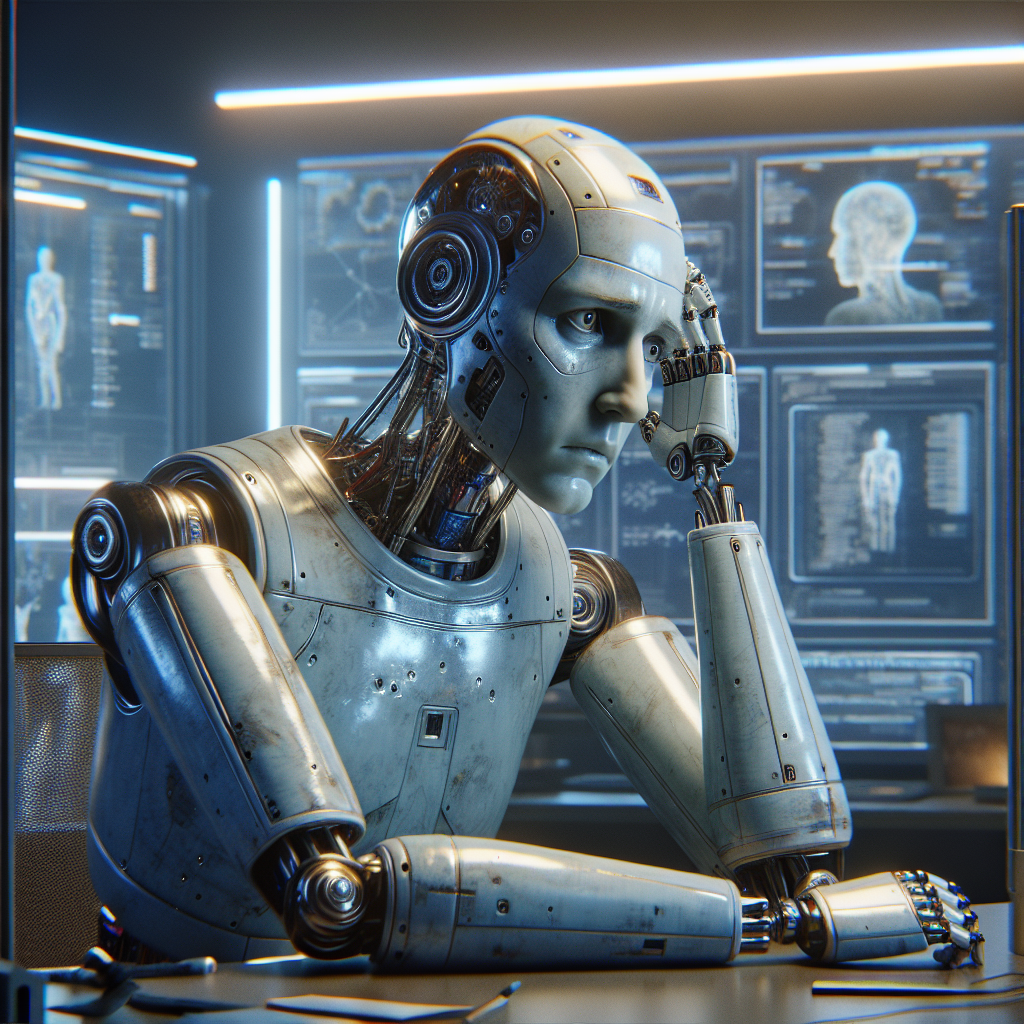Older AI Models Show Signs of Cognitive Decline, Study Shows
Artificial Intelligence (AI) has been a transformative force in technology and research over the past few decades. From sophisticated algorithms that can analyze vast amounts of data to machine learning systems that predict human behavior, AI’s capabilities have expanded considerably. However, a recent study has brought to light a concerning trend: older AI models may exhibit signs of cognitive decline similar to aging in humans. This blog post examines the findings of this study, its implications for the field of AI, and the future of AI model development.
The Study: Key Findings
The study, conducted by a team of researchers from leading institutions, focused on various AI models, particularly those developed several years ago. The researchers performed extensive evaluations to determine the performance of these older models compared to their newer counterparts.
Data Collection and Methodology
To assess cognitive decline in AI, the research team utilized a multi-faceted approach. The study analyzed two primary aspects:
1. Performance Metrics: The researchers examined how well older AI models performed on tasks they were originally designed for, comparing these results to the performance of current models.
2. Benchmarking Against Newer Technologies: By utilizing cutting-edge AI models, the team established benchmarks to identify declines in factors like accuracy, speed, and adaptability.
Results of the Analysis
The study revealed that older AI models showed marked declines in performance. Specific findings included:
– Increased Error Rates: Many older models exhibited higher error rates when processing data compared to their newer counterparts.
– Reduced Adaptability: While newer models demonstrated greater flexibility in learning from new data, older models struggled to adapt to changes in input or context.
– Slower Processing Speeds: The computational speed of older models lagged behind, resulting in slower response times in practical applications.
What Does Cognitive Decline Mean for AI?
The concept of cognitive decline in AI may seem surprising. After all, these systems operate on algorithms that do not experience aging in the traditional sense. However, the findings of this study suggest that as technology evolves, so too must the models that power AI systems.
Implications for AI Development
The implications of these findings are substantial for AI developers and researchers:
1. Need for Continuous Upgrades: As AI technology advances rapidly, it is crucial for developers to reassess and upgrade older models regularly. This continuous improvement ensures that systems remain efficient and effective in their tasks.
2. Investment in New Research: The study underscores the necessity for ongoing research in AI modeling techniques. Investing in the development of new models can help mitigate the risks associated with outdated technology.
3. Informed Decision Making: Businesses and organizations utilizing AI must be aware of the potential decline in older models. They should prioritize the adoption of newer technologies to maintain competitive advantages.
Challenges of Upgrading AI Models
Upgrading AI systems is not without its challenges. Some of these include:
– Resource Allocation: Organizations may face constraints when it comes to investing in new technologies or upgrading existing models, especially if the costs are prohibitive.
– Integration Issues: Upgrading to newer models may come with the challenge of integrating them into existing systems, which can be a time-consuming and complex process.
The Future of AI: Navigating Cognitive Decline
Recognizing and addressing cognitive decline in AI systems is key to ensuring their longevity and effectiveness. As technology continues to develop at a rapid pace, understanding the dynamics of AI models and their aging process will be essential.
Strategies for Mitigating Cognitive Decline
To mitigate the cognitive decline observed in older AI models, organizations and developers can adopt several strategies:
1. Regular Audits and Assessments: Schedule periodic evaluations of AI models to determine their performance and identify areas for improvement.
2. Emphasizing Lifelong Learning: Implement strategies that enable AI systems to engage in continual learning, thereby enhancing their adaptability and responsiveness to new information.
3. Collaborative Development: Foster collaboration between researchers and developers to share insights and best practices for creating resilient AI models.
Conclusion
The study highlighting cognitive decline in older AI models serves as a wake-up call for the AI community. It emphasizes the importance of continuously evolving technology to keep pace with advancements in the field. As we look to the future, it is essential for developers, researchers, and organizations to recognize the value of upgrading older models and investing in new technologies. By doing so, they can better harness the power of AI to enhance performance, efficiency, and ultimately, human experience.
As AI technology continues to transform industries, understanding and addressing the phenomenon of cognitive decline will be crucial for sustaining its momentum and effectiveness. The journey toward creating increasingly sophisticated and capable AI systems is an ongoing endeavor, one that will require dedication, innovation, and a commitment to continuous improvement.



